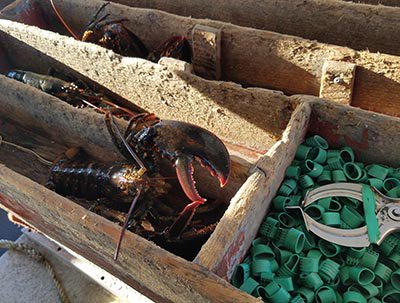A European Union committee has rejected a proposal made by Sweden to declare lobster from North America (Homarus americanus) declared an invasive species and ban any imports to 28 member countries.
If the proposed ban had gone through, American lobsterman would’ve lost roughly $150 million in live exports annually. Doug Stewart photo.The EU Scientific Forum on Invasive Alien Species, which is made up of experts appointed by each EU member state, confirmed the validity of Sweden’s scientific risk assessment in September, declaring there was enough evidence to warrant a full investigation.
After clearing that first hurdle, the proposal was rejected by an EU committee on Oct. 14. A spokeswoman said the committee will explore measures that would cause fewer trade restrictions.
Sweden has been pushing the ban proposal since March 2016 when it presented evidence that 32 American lobsters had been found in its waters since 2008 and that the lobsters were threatening native species. Fishery officials from the United States and Canada have repeatedly said those lobsters were likely live discards and there was no sort of migratory threat.
American lobstermen export about $150 million worth of lobster to the member states of the EU each year. Canada exports roughly $75 million worth.
Federal regulators, trade officials, scientists and industry representatives have been working together since March to shut down the proposal.
“We’re glad this has come to a close,” said Annie Tselikis, executive director of the Maine Lobster Dealers Association. Maine exported nearly $130 million worth of lobster alone last year. “Our next step will be to work with Sweden around their valid concerns, and do what we can to work with them moving forward.”







